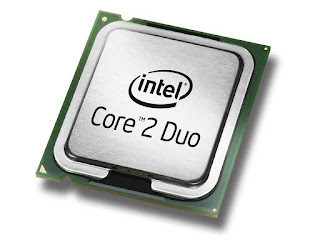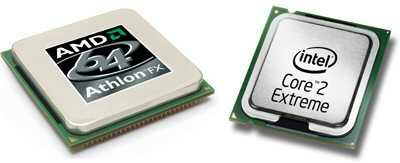How to Overclock a Dual core processor
 So what do we mean when we say overclocking? Overclocking is basically increasing the base speed of a processor. Laptops and Desktops come with an official speed grade set by the company. However, most processors can be pushed to the brink. Overclocking used to be very complex because earlier processor came with a fixed speed that couldn’t be changed at all.
So what do we mean when we say overclocking? Overclocking is basically increasing the base speed of a processor. Laptops and Desktops come with an official speed grade set by the company. However, most processors can be pushed to the brink. Overclocking used to be very complex because earlier processor came with a fixed speed that couldn’t be changed at all.Nowadays, Huge companies such as AMD and Intel, offer unlocked versions of their processors, making overclocking simpler. Overclocking a processor can also lead to permanent damage so it’s very important to only do this to a motherboard that supports overclocking or you can ruin your computer for good.
Bench test
 Just before overclocking a dual core processor, I’d advise you to conduct a baseline test using a reliable benchmark tool. A baseline test establishes the current operational settings of the computer, giving users a clear picture of how far they can go.
Just before overclocking a dual core processor, I’d advise you to conduct a baseline test using a reliable benchmark tool. A baseline test establishes the current operational settings of the computer, giving users a clear picture of how far they can go.Raising the clock speed and multiplier
To gain access to the processor, you need to first access the bios. Depending on model hold down DELETE, F10, F11 or F12 key, whilst starting up the computer. Once inside the BIOS you can proceed by completing the following steps.
IG: @galactivale
Go to Frequency/voltage control menu
Decrease the memory bus speed widely known as DDR memory frequency, memory multiplier and memory ratio
Raise the memory bus speed approximately by 10%. For instance, if the base speed is 1.6GHz, raise it to 1.76GHz
Save the settings and restart the system
Run a bench test to see if the system is stable
If the system is stable, shutdown and log in to BIOS again
Repeat the process each time restarting to check stability
Voltage and Voltage levels
Insure that the CPU never exceeds 85 degree centigrade. Users can also raise the voltage requirement of their CPU by increasing the core voltage setting by increments of 0.025. Doing this is very dangerous, and offers little gain, performance sense.
This is very useful when it comes to gaming because a lot of new games need higher clocking speed to enable to play them smoothly. Performance is also important to run heavy applications so our computers don’t drag.

No comments: